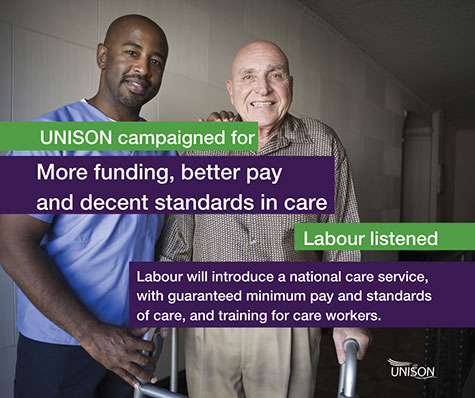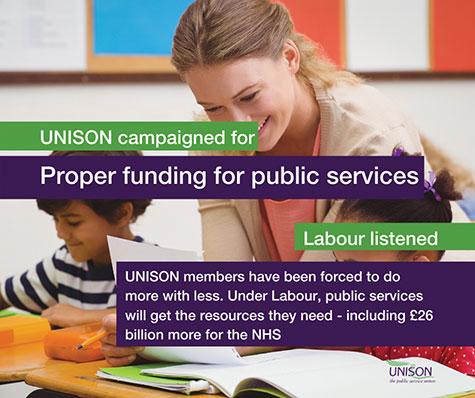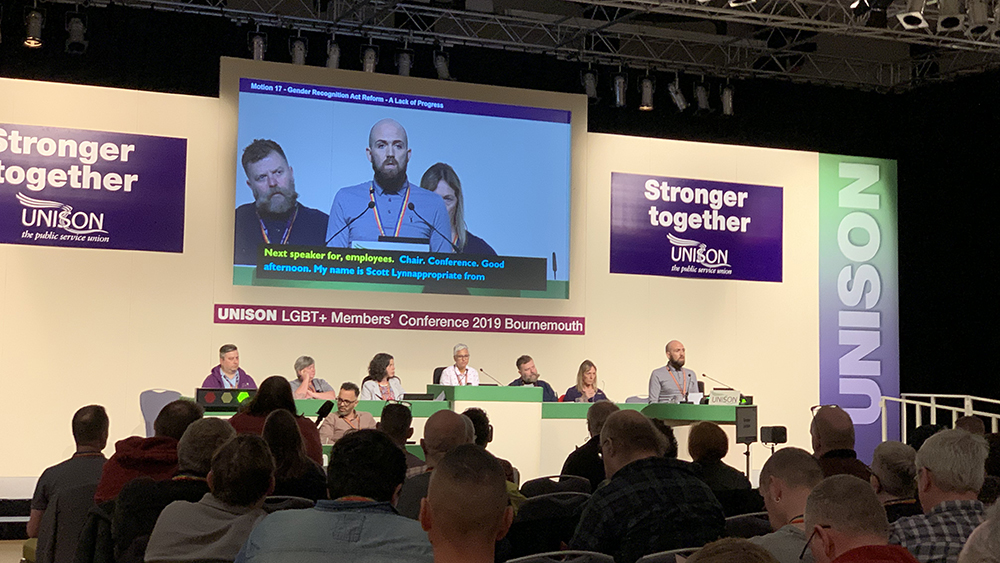Just weeks ago, as the general election campaign started to pick up speed, NHS England released some interesting data: accident and emergency waiting times were the worst on record.
It didn’t get that much traction in a media concentrating on the run-up to the political theatre of the first party leaders’ debate.
But as fullfact.org spelled out:
“In October 2019, 83.6% of patients attending all types of A&E departments (including things like dental A&E and urgent care centres) in England were admitted, transferred or discharged within four hours.”
A year ago, 89.1% were seen within the four-hour target. Over the summer, that fell to an average of 86% – making it the worst summer since 2004. And now it fallen again. That’s quite a drop in the past 12 months.
Monthly figures only started being recorded in 2010. But before that, there are quarterly figures, which show that 95% of patients were seen within four hours in every three-month period between July 2004 and the end of 2012.
The target was originally for 98% of A&E patients to be seen in that time. One of the first acts of the new government in June 2010 was to cut that to 95%. Now it can’t even meet that.
That’s just one statistic. In just one public service. But it is reflected across the health service and public services in general. In the final days before the election, it highlights the state of the key services our members work in and our families rely on.
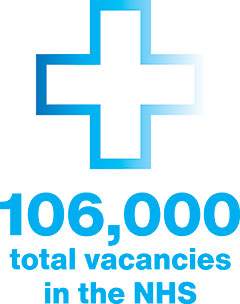 This government, and the Conservative-Liberal Democrat coalition before it, are responsible for the worst financial squeeze in the history of the NHS.
This government, and the Conservative-Liberal Democrat coalition before it, are responsible for the worst financial squeeze in the history of the NHS.
Since it was founded in 1948, spending on the health service grew by an average of almost 4% a year.
Since 2010, that’s been just 1.5% a year – while CPI inflation was generally over 2% (it dropped briefly to around 0% in 2015, but was as high as 4.5% in 2011).
More than 106,000 vacancies remain unfilled across the NHS, including more than 44,000 nursing and midwife posts. In social care, there are 110,000 vacancies.
And the number of hospital beds available to treat people has fallen over a decade of austerity. In April 2010, says NHS England, there were 144,455 hospital beds of all types. In July-September this year, that had fallen to 127,225.
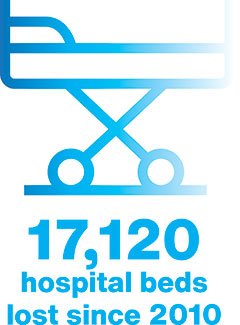 And all that has a real effect on people who need medical treatment.
And all that has a real effect on people who need medical treatment.
Less than half of hospitals are now able to meet the 18-week waiting times standard for non-emergency – or “elective” – surgery.
Nearly three-quarters of services are failing to treat patients within 62 days of a GP referral for suspected cancer.
And in the past year, more than 78,000 operations have had to be scrapped at the last minute due to issues such as equipment failure or a lack of staff.
The health service may be the largest single public service, and one that grabs headlines and people’s attention, but it is far from the only area where a decade of austerity is biting.
Across the UK, councils provide many vital services, often unnoticed and underappreciated, but which are key to our basic quality of life.
 And they have been hit particularly hard when it comes to cuts and a decade of austerity since David Cameron walked into No 10, followed by Theresa May and Boris Johnson.
And they have been hit particularly hard when it comes to cuts and a decade of austerity since David Cameron walked into No 10, followed by Theresa May and Boris Johnson.
Youth services are crucial to making sure everyone in our communities gets a secure start in life, and helping make our communities safer.
Yet councils in England, Wales and Scotland have had to close 850 children’s centres and family hubs between 2010-11 and 2018-19. Over the same period, we’ve lost 920 youth centres. The same councils have also seen their numbers of you workers and youth support workers drop by more than 60%.
And even where closures have been avoided, the scale of cuts has forced councils to reduce the facilities on offer or the times when centres are open.
A particularly visible sign of the devastation of public services provided by local authorities has been the cuts in libraries – a shared social space providing a range of services including access to books, free internet, activities for young children and access to basic information.
Overall, England, Scotland and Wales have seen 703 municipal libraries disappear over the last decade – a fall of 21.75%. At the same time, there has been a mushrooming of libraries run by volunteers: but nowhere near enough to make up for loss of council libraries staffed by qualified
 In 2010, there were 21 volunteer-run libraries in Britain. Now there are 223.
In 2010, there were 21 volunteer-run libraries in Britain. Now there are 223.
The picture varies across the country, of course. The council with the biggest loss of libraries was Leicestershire, which has seen 34 go, falling from 52 libraries in 2010 to 18 now.
Other highlights – or perhaps that should be lowlights – include Doncaster, which lost 22 libraries as numbers fell from 26 to four; Bradford and Sunderland, which both lost 19, falling from 31 to 12 and 22 to three respectively; and Lancashire, which lost 17, dropping from 85 in 2010 to 68 now.
Or let’s take a look at another key service for many people: buses.
These are a vital public service that, in many areas, are often only able to function with funding from councils. People living in rural, and even some urban, communities often rely on them to get access to work, shops, healthcare and many other social services.
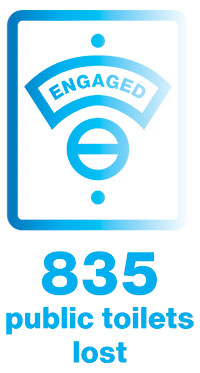 In 2010, when the Conservatives took over government, 3,881, bus routes were partly or completely subsidised by councils in England, Wales and Scotland. By this year, that number was 2,657. That’s 1,224 subsidised routes that have vanished – a fall of 31.54%.
In 2010, when the Conservatives took over government, 3,881, bus routes were partly or completely subsidised by councils in England, Wales and Scotland. By this year, that number was 2,657. That’s 1,224 subsidised routes that have vanished – a fall of 31.54%.
And the picture is repeated in service after service.
Councils across the three countries have lost 835 public toilets between 2010 and 2019, a drop of 20.74%; they have 40% fewer environmental health staff to deal with issues like food safety, pest control, air pollution etc, and almost 30% fewer trading standards officers to protect consumers and enforce safety legislations.
Councils have been forced to cut back on how often they collect rubbish from people’s homes: just one in six councils still do a weekly collection of non-recyclable waste.
When it comes to crime and the safety of our families and communities, the figures are equally stark.
In March 2010, police forces in England and Wales employed 143,735 police officers, 16,919 police community support officers or PCSOs and 79,595 other police staff. By March 2019, those numbers had fallen to 123,171 officers, 9,551 PCSOs and 64,411 other staff.
 In other words, there were 20,564 fewer police, 7,368 fewer PCSOs and 15,184 fewer 999 call handlers, dispatchers, crime scene investigators, forensic staff, custody officers and other key workers. Less of everyone we need to keep our streets, families and communities safe.
In other words, there were 20,564 fewer police, 7,368 fewer PCSOs and 15,184 fewer 999 call handlers, dispatchers, crime scene investigators, forensic staff, custody officers and other key workers. Less of everyone we need to keep our streets, families and communities safe.
And the picture was similar in Scotland and Northern Ireland – whatever strategy devolved governments adopted, they had to police with less money coming from the central Westminster pot.
Police force budgets have been cut by 25%. At the same time, cuts across other public services means more work for the police, the NHS and the criminal justice system.
Vital safety nets have been removed. Communities are less safe and vulnerable people left without the help they need.
That’s just a snapshot of the state of public services in the UK as people across the country, including UNISON members, prepare to go to the polls on 12 December.
And while the statistics we quote here are useful in shining a light on what’s going on, facts and figures alone are dry things which are unlikely on their own to convince voters to opt for one party or another. Research shows that people are more likely to choose which party to vote for based on values and emotional judgement.
But what we can do with these facts and figures is help people who might be unsure about voting at all, for whatever reason, to go out and use their vote and make sure their voice is heard in defence of public services.
Our own research shows that – unsurprisingly – our members feel that a lack of funding had driven public services to crisis point.
UNISON’s core message to them is simple:
You and our family need public services. And public services need you – not only because of the vital job you do, but to use your vote on 12 December. Your vote can make a difference. Your vote can rescue public services.
The article Cuts … not just Brexit first appeared on the UNISON National site.
from RSSMix.com Mix ID 8239598
https://www.unison.org.uk/news/ps-data/2019/12/ge-data/
via
IFTTT
source
https://childrensplayareadesigns.tumblr.com/post/189508731272
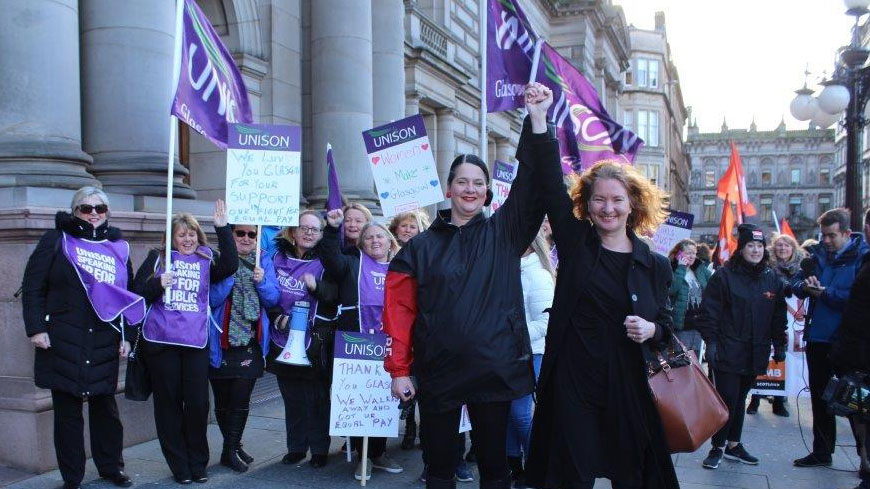

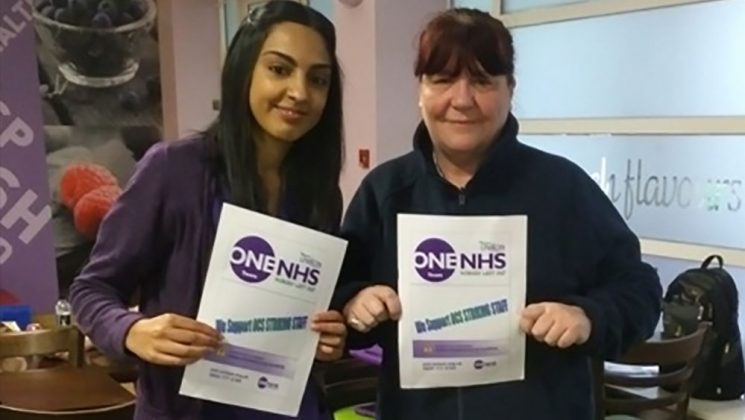

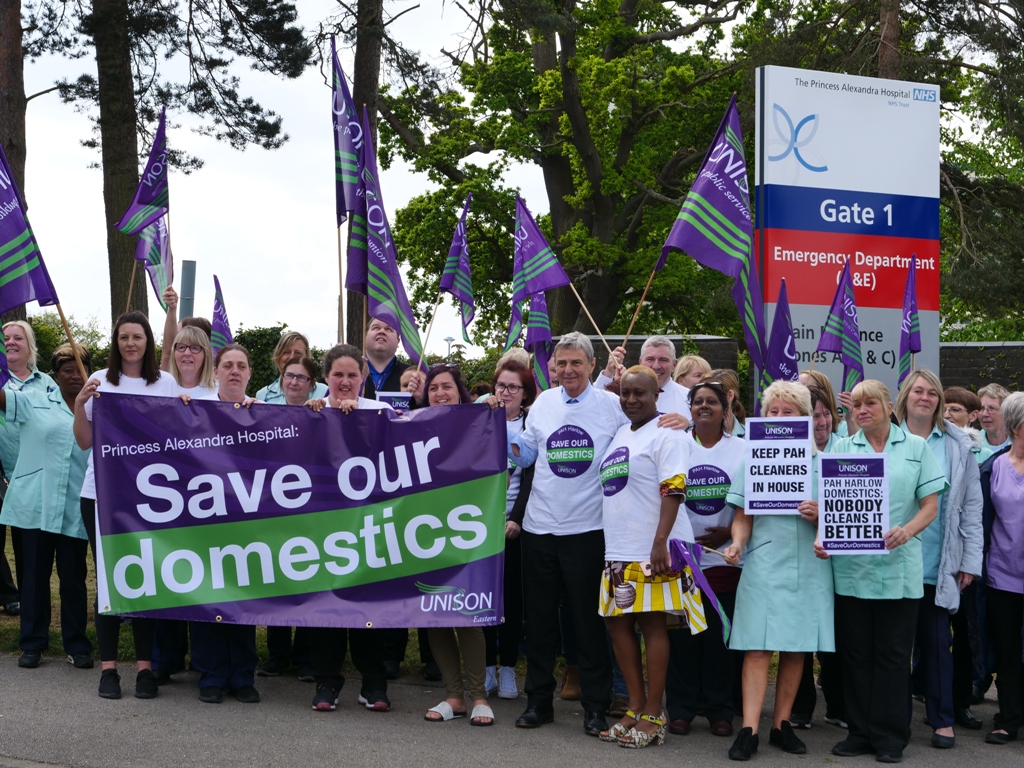

 This government, and the Conservative-Liberal Democrat coalition before it, are responsible for the worst financial squeeze in the history of the NHS.
This government, and the Conservative-Liberal Democrat coalition before it, are responsible for the worst financial squeeze in the history of the NHS. And all that has a real effect on people who need medical treatment.
And all that has a real effect on people who need medical treatment. And they have been hit particularly hard when it comes to cuts and a decade of austerity since David Cameron walked into No 10, followed by Theresa May and Boris Johnson.
And they have been hit particularly hard when it comes to cuts and a decade of austerity since David Cameron walked into No 10, followed by Theresa May and Boris Johnson. In 2010, there were 21 volunteer-run libraries in Britain. Now there are 223.
In 2010, there were 21 volunteer-run libraries in Britain. Now there are 223. In 2010, when the Conservatives took over government, 3,881, bus routes were partly or completely subsidised by councils in England, Wales and Scotland. By this year, that number was 2,657. That’s 1,224 subsidised routes that have vanished – a fall of 31.54%.
In 2010, when the Conservatives took over government, 3,881, bus routes were partly or completely subsidised by councils in England, Wales and Scotland. By this year, that number was 2,657. That’s 1,224 subsidised routes that have vanished – a fall of 31.54%. In other words, there were 20,564 fewer police, 7,368 fewer PCSOs and 15,184 fewer 999 call handlers, dispatchers, crime scene investigators, forensic staff, custody officers and other key workers. Less of everyone we need to keep our streets, families and communities safe.
In other words, there were 20,564 fewer police, 7,368 fewer PCSOs and 15,184 fewer 999 call handlers, dispatchers, crime scene investigators, forensic staff, custody officers and other key workers. Less of everyone we need to keep our streets, families and communities safe.
